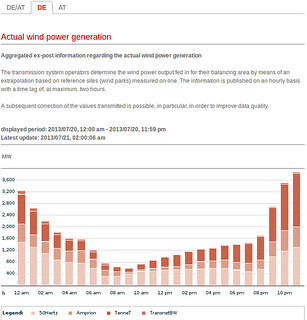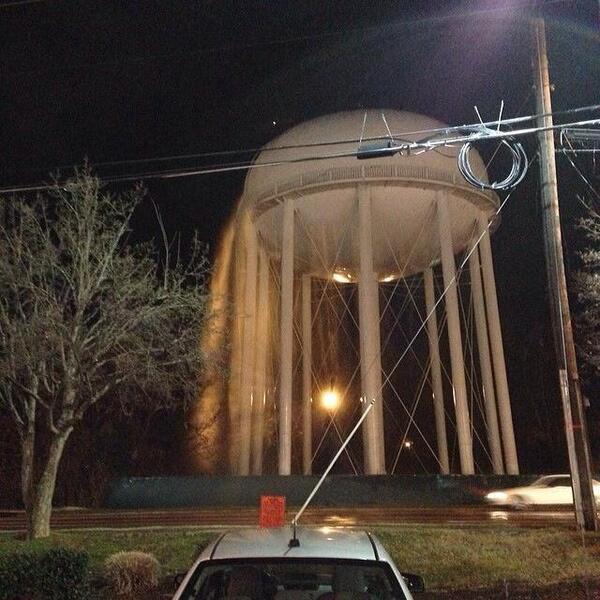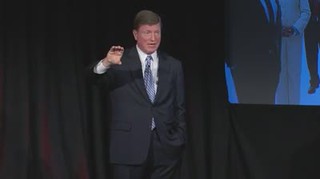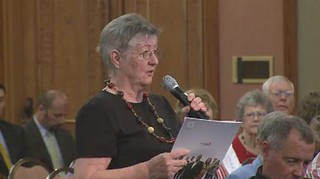The biggest wind problem in Germany is it produces too much power?
Fortunately there are two well-known simple solutions to
this problem raised by GA Public Service Commissioner Tim Echols in
a comment yesterday.
I do want to thank him for engaging in dialog with the public.
Tim Echols
wrote:
 We need nuclear, coal and gas as our baseload power. Germany is
doing the opposite and they are in trouble. Their people pay triple
what we pay for power, and when the wind is blowing at night or on
the weekend, the Germans have to pay Poland to take their excess
power. All of that primarily because the German people hate nuclear
power. In Georgia, we are leading the nation, and I am fine with
that. I just want to make sure our ratepayers are protected and not
paying for the learning curve of new nuclear.
We need nuclear, coal and gas as our baseload power. Germany is
doing the opposite and they are in trouble. Their people pay triple
what we pay for power, and when the wind is blowing at night or on
the weekend, the Germans have to pay Poland to take their excess
power. All of that primarily because the German people hate nuclear
power. In Georgia, we are leading the nation, and I am fine with
that. I just want to make sure our ratepayers are protected and not
paying for the learning curve of new nuclear.
As FERC Chairman Jon Wellinghof has been pointing out for years,
baseload is the problem.
The baseload ideology stands in the way of
the distributed solar power the vast majority of the American people want, and in the way of wind power.
Regarding German power costs to customers, Germany is far north of here,
with far less sun, and Germany has depended heavily on Feed-In Tariffs,
which may or may not be what we need in Georgia.
Meanwhile, what’s been hiking power rates in Georgia is not solar or wind
power, it’s
nuclear and natural gas.
And not for Feed-In Tariffs, either, which are only charged on actual
energy production.
The Georgia legislature approved
Construction Work in Progress (CWIP) for nuclear,
and GA PSC has raised rates to pay for natural
gas plant construction, which amounts to the same thing.
If we want to save ratepayers money,
we should get on with solar and wind power.
Now to the problem with two well-known solutions: Continue reading →
 Tom Fanning is getting support for his idea of utility-owned
rooftop solar.
Can we see that tiger team report, Tom?
And FPL, how about you get on with this, instead of
trying to gouge an unneeded yard-wide methane pipeline through here?
Sun, wind, and water can power each U.S. state,
so how about FPL in the Sunshine State and Southern Company in the southeast
get out in front and lead?
Tom Fanning is getting support for his idea of utility-owned
rooftop solar.
Can we see that tiger team report, Tom?
And FPL, how about you get on with this, instead of
trying to gouge an unneeded yard-wide methane pipeline through here?
Sun, wind, and water can power each U.S. state,
so how about FPL in the Sunshine State and Southern Company in the southeast
get out in front and lead?
 Less than two years after
Less than two years after









